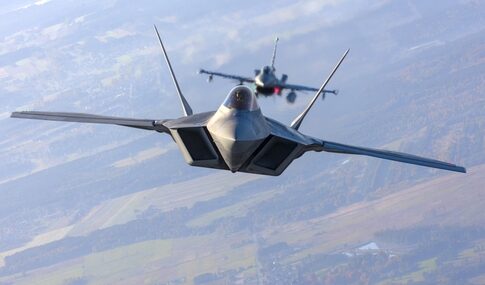The world community watched as B-2 bombers carried out a strategic air strike in Yemen. President Biden authorized the strike, which was directed against the Houthis. The attacks targeted deeply buried military sites. Despite ongoing tensions, the air strike sends a clear message to Iran.
Precision air strikes in Yemen
On October 16, 2024, the US demonstrated its military might by carrying out a precision airstrike on Houthi-controlled areas in Yemen. The mission, carried out by B-2 Spirit bombers, centered on five strategic underground weapons storage sites. These strikes reflect the United States’ committed goal of protecting its interests and ensuring the free flow of international commerce through critical waterways impacted by Houthi activities.
The use of B-2 bombers was a significant event because it was the first time these aircraft were used against the Houthi rebels. This demonstrates America’s technological advantage in warfare and readiness to engage even the most fortified targets. Secretary of Defense Lloyd J. Austin III authorized the B-2 bomber mission, emphasizing the United States’ global strike capabilities.
The US military carried out fresh airstrikes on #Yemen-based #Houthi rebels on October 17. The US forces used B-2 stealth bombers for the first time to attack deep underground bunkers of the Houthis in Yemen.https://t.co/gwjuxd2w9G pic.twitter.com/sy2u7eycEl
— Hindustan Times (@htTweets) October 17, 2024
Strategic Implications and Aims
The strike aimed to weaken the Houthi military and protect critical international navigation routes. The Houthis, backed by Iran, have been known to target ships in the Red Sea and surrounding areas, disrupting trade and posing environmental risks. These actions necessitated an American response that not only sought to dismantle Houthi capabilities, but also demonstrated the United States’ commitment to deterring further aggression.
“The employment of U.S. Air Force B-2 Spirit long-range stealth bombers demonstrate U.S. global strike capabilities to take action against these targets when necessary, anytime, anywhere.” – Secretary of Defense Lloyd J. Austin
Furthermore, the United States clearly communicated the strength of its aerial bombing capabilities, particularly the ability of B-2 bombers to target deep-buried facilities. Analysts believe this action serves as a calculated warning to Iran, which has been encouraging Houthi activity in the region. The Houthis, however, have vowed retaliation, complicating the regional conflict.
& here is the statement by @SecDef on the strikes in Yemen :
Today, U.S. military forces, including U.S. Air Force B-2 bombers, conducted precision strikes against five hardened underground weapons storage locations in Houthi-controlled areas of Yemen. U.S. forces targeted… https://t.co/xCyR93YHQt
— Hiba Nasr (@HibaNasr) October 17, 2024
The Ongoing Middle Eastern Conflict
The Houthi conflict, which stems from a long-running war that began in 2015, continues to fester against the backdrop of a Saudi-led coalition. This US operation highlights the possibility of escalation in the Middle East, which could have an impact on global peace efforts. The situation remains volatile, with the Houthis establishing a vast network of underground bases and defensive positions.
“This was a unique demonstration of the United States’ ability to target facilities that our adversaries seek to keep out of reach, no matter how deeply buried underground, hardened or fortified,” Austin said.
The conflict’s consequences extend beyond Yemen, as evidenced by the Houthi threat to Israel-linked vessels and wider regional instability. Officials at the United Nations have expressed concern about the possibility of further military escalation, which could jeopardize peace efforts. The United States, on the other hand, is adamant about keeping international trade routes safe from Houthi attacks.
Sources:
- Statement by Secretary of Defense Lloyd J. Austin III on U.S. Airstrikes in Houthi-Controlled Areas of Yemen
- US long-range B-2 stealth bombers target underground bunkers of Yemen’s Houthi rebels

